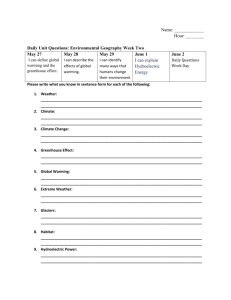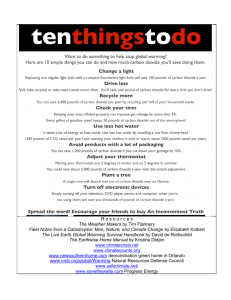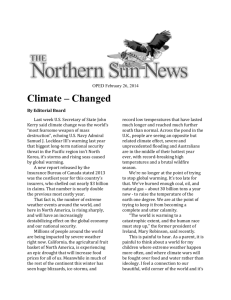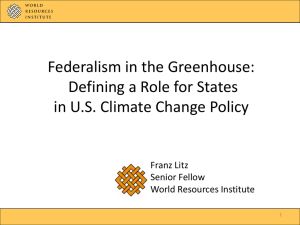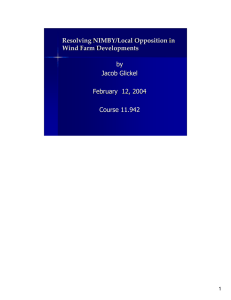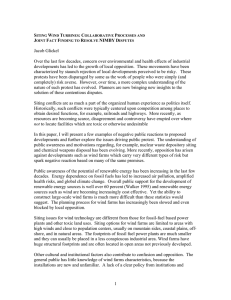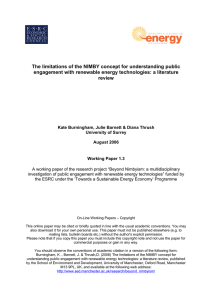Week 3 Lecture Notes
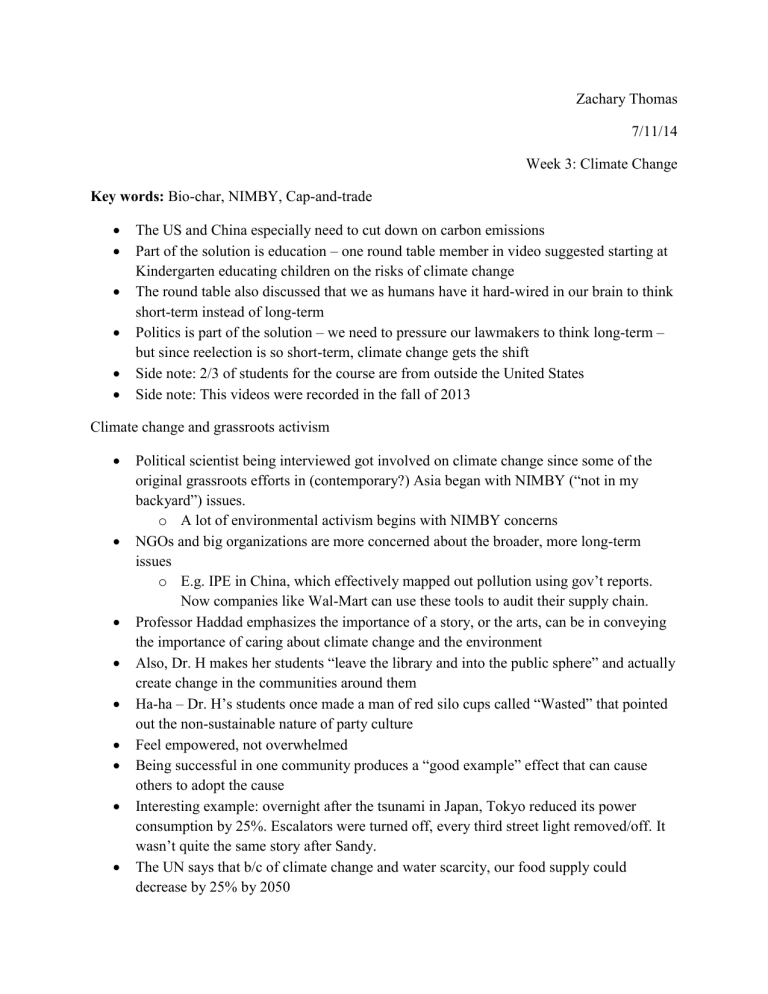
Zachary Thomas
7/11/14
Week 3: Climate Change
Key words: Bio-char, NIMBY, Cap-and-trade
The US and China especially need to cut down on carbon emissions
Part of the solution is education – one round table member in video suggested starting at
Kindergarten educating children on the risks of climate change
The round table also discussed that we as humans have it hard-wired in our brain to think short-term instead of long-term
Politics is part of the solution – we need to pressure our lawmakers to think long-term – but since reelection is so short-term, climate change gets the shift
Side note: 2/3 of students for the course are from outside the United States
Side note: This videos were recorded in the fall of 2013
Climate change and grassroots activism
Political scientist being interviewed got involved on climate change since some of the original grassroots efforts in (contemporary?) Asia began with NIMBY (“not in my backyard”) issues. o A lot of environmental activism begins with NIMBY concerns
NGOs and big organizations are more concerned about the broader, more long-term issues o E.g. IPE in China, which effectively mapped out pollution using gov’t reports.
Now companies like Wal-Mart can use these tools to audit their supply chain.
Professor Haddad emphasizes the importance of a story, or the arts, can be in conveying the importance of caring about climate change and the environment
Also, Dr. H makes her students “leave the library and into the public sphere” and actually create change in the communities around them
Ha-ha – Dr. H’s students once made a man of red silo cups called “Wasted” that pointed out the non-sustainable nature of party culture
Feel empowered, not overwhelmed
Being successful in one community produces a “good example” effect that can cause others to adopt the cause
Interesting example: overnight after the tsunami in Japan, Tokyo reduced its power consumption by 25%. Escalators were turned off, every third street light removed/off. It wasn’t quite the same story after Sandy.
The UN says that b/c of climate change and water scarcity, our food supply could decrease by 25% by 2050
The World Bank notes that the effects of climate change will be felt by all, but no equally.
When discussing economic growth, we must also discuss climate change.
Climate and Risk Assessment (w/ Dr. Gary Yohe)
The planet has warmed about a degree centigrade since the industrial Revolution
The difference between this warming trend and the past is that it is going at a faster rate, and to a good extent accelerated by human activity
Yohe advocates a risk-based approach to this topic: think about the likelihood of these events and their consequences. And think through what you would do in each of these scenarios, what adaptations needed.
Cap-and-trade- Government sets a “cap” amount for polluters to at maximum meet. This cap is lowered over time. Each company has a set of carbon allowances equal to the cap.
If the company is efficient and actually pollutes under the cap, it can sell (“trade”) its remaining allowances to other companies for extra cash.
Think about the consequences of global warming and how it might affect you (i.e. hurricanes and increased rainfall, rising sea levels near coast). Then go from there.
Progress, it seems, is composed of patchwork.
Dr. Yohe sees the future on this topic on a state scale with bilateral agreements and not huge global pacts to reduce the effects of climate change/carbon emissions
International reports on this topic: IPCC report #5, National Academy of Sciences, The
National Climate Assessment o These assessments nowadays are becoming much more careful in how they project things – want to avoid coming off as alarmist. For example, IPCC5 emphasizes that some agricultural models will benefit from global warming
Interview with Dr. Daniel Kammen of UC Berkeley
In communicating about climate change and the environment: start discussion with the face that 1/5 of humanity doesn’t have adequate access to energy (e.g. largest black-out ever happened a couple years ago in India). We have de-carbonize our energy sources.
6 main effects of climate change:
1.
Rising Sea Levels a.
Think NYC and Hurricane Sandy b.
Next century will see 1’ to 4’ of sea level increase
2.
Increase in intense rainfall a.
You’ll still see dessication since a lot of the rain will be over oceans b.
Some areas will be more prone to drought
3.
Decrease in snow and ice cover
4.
Increase in heat waves
a.
Also, wildfires. Think California or Australia a couple years ago
5.
A change in the growing seasons a.
Some countries will more impacted than others, more able to shield themselves from the effects of global warming
6.
Acidification of Oceans a.
Think of the dying coral reefs. Biologists say we’re currently in a mass extinction

